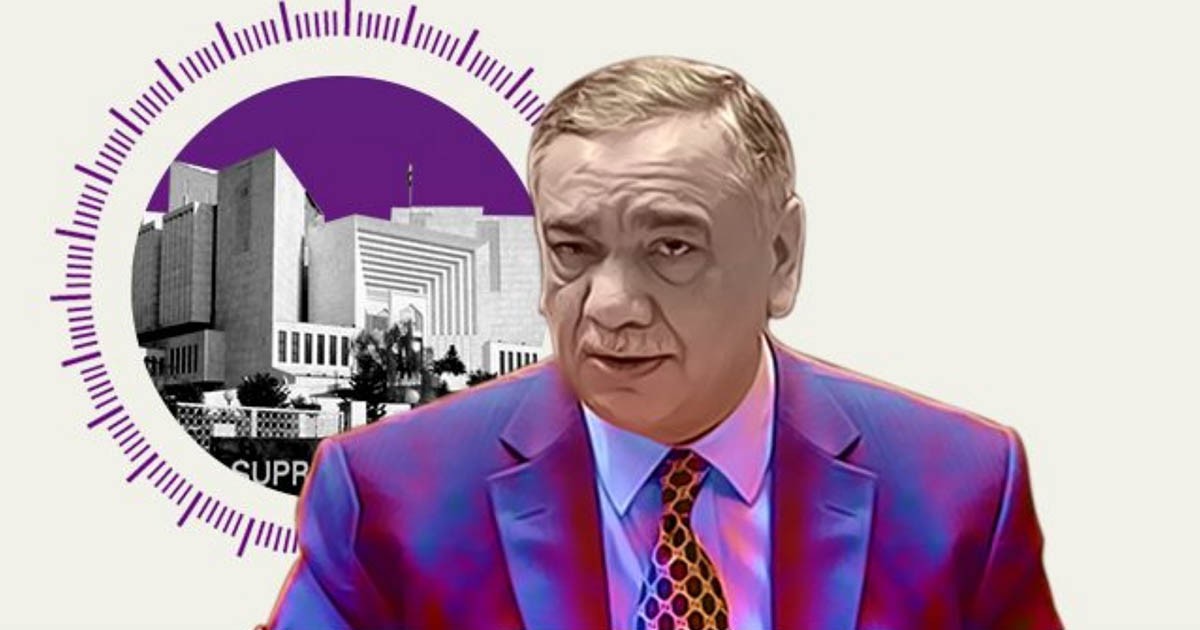News Desk |
The Chief Justice of Pakistan (CJP) Justice Asif Saeed Khosa has said that false testimonies and delays in court proceedings were the major hindrances in the swift delivery of justice in criminal cases in Pakistan.
The CJP, however, linked the improvement in the criminal justice system with reforms in the police system. The top judge said that police reforms were the need of the hour and without it, improvement in society was not possible. He said the investigating officers would be prosecuted if they were found involved in producing false witnesses.
CJP Khosa had remarked that lying and deceit were the main problem of the country, adding that people were ‘deceitful in this country.’
“In 1925, a British judge of the Lahore High Court remarked that in every part of the world, a dying declaration had sanctity attached to it. But it is only the sub-continent where people even on death bed falsely accuse their opponents such that their suffering continues, even after their death,” CJP Khosa quoted a British judge of the LHC while sharing an anecdote on false testimonies from the colonial era.
Referring to the model courts established in twelve districts across the country, he said that the prevailing justice system had partially improved with it as around 7,000 cases of murder and narcotics were disposed of within a period of eight months. He said it a revolutionary step to end the pendency of the cases.
Read more: No mercy: Acid attack bigger crime than murder, CJP Khosa
“False in one respect; false in all respects,” CJP
Lamenting the issue of false testimonies, the CJP said that only father or sons of the deceased appear before courts as witnesses in almost every murder case, adding that they stand as witnesses even when the victim is found in the deserted areas.
The top judge said that police reforms were the need of the hour and without it, improvement in society was not possible.
While opposing the ruling of a former CJP on false testimonies, The Express Tribune quoted CJP Khosa as saying: “In 1951 Justice Munir Malik of “doctrine of necessity” fame believed that accepting false statement was necessary to convict an accused… it was a wrong approach which destroyed the social fabric of society.”
It may take some time and result in the acquittal of a few hundred people but false testimony under any circumstances will not be accepted, he said, adding “false in one respect; false in all respects.”
Read more: Trust judges, they will ensure justice in Justice Isa’s matter: CJP Khosa
“Everyone is deceitful in this country”, remarks CJP
In May, CJP Khosa had remarked that lying and deceit were the main problem of the country, adding that people were ‘deceitful in this country.’
“Everyone is deceitful in this country,” the CJP had remarked during the hearing of a case of a government servant, Lubna Bilqees, doing two simultaneous jobs in the erstwhile Federally Administered Tribal Areas (FATA).
“A government employee, who does two jobs and lies about it, does not deserve any kind of a job,” he had said, adding that the main problem in the country was of lying and deceit wondering if the educated ones were deceitful then what would the illiterate do.
In May, CJP Khosa had remarked that lying and deceit were the main problem of the country, adding that people were ‘deceitful in this country.’
It had emerged during the hearing that Bilqees was appointed as a teacher in Grade 9 at City School in 2009. In 2012, she had become a lecturer in Grade 17 on a contract basis. Her counsel had informed the three-member bench that she took a year-long unpaid leave from City School after starting the lecturer’s job.
The CJP noted that Bilqees’ contract was further extended as she continued with the lecturer’s job, adding that she continued receiving salary from the City School in her bank account. When the counsel had informed the bench that his client had returned all the salaries, Justice Sajjad Ali Shah remarked that she committed fraud.
Read more: CJP Khosa announces model courts for speedy trials
“You committed fraud. Submitted the resignation with the City School after three years,” he had said. The CJP had added: “you can’t neglect the facts. You did two jobs simultaneously, which is a crime.”
The top judge had then remarked that “everyone is deceitful in this country”, adding “Lubna Bilqees thought that it was a matter of FATA so no one will know about it. After this, Lubna Bilqees is not entitled to hold any public office,” he had said.
Hearing the remarks, the counsel had requested the bench to allow him to withdraw the appeal, which the court had accepted. Bilqees had approached the Supreme Court after Peshawar High Court had turned down her appeal of allowing her to simultaneously do two jobs.














